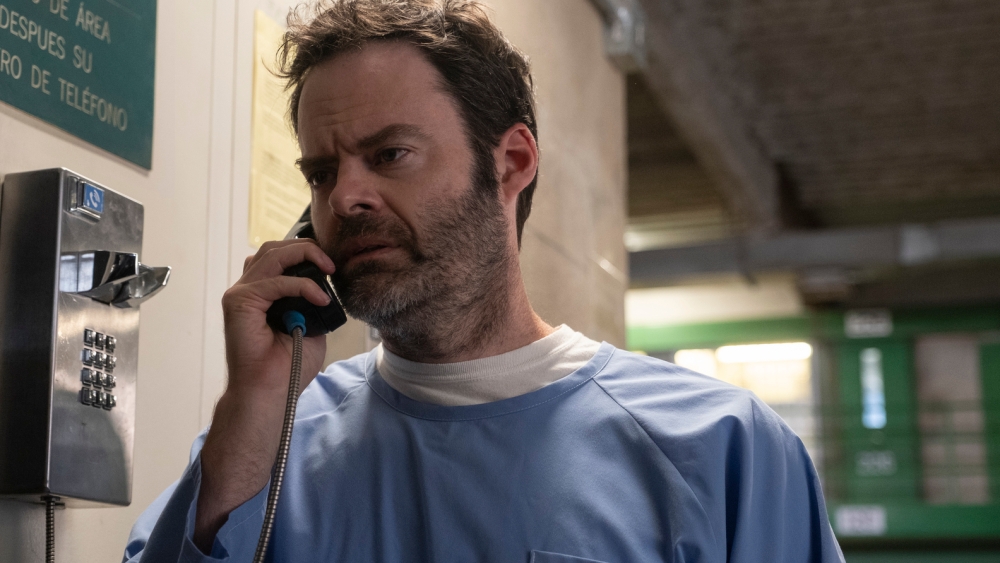Barry Season 4 Review: Bill Hader’s HBO Comedy Nails Final Season
When “Barry” began, it was the punchline to a simple setup: a hitman walks into an acting class, then kills in every sense of the term. Co-creator and star Bill Hader was best known for his sketch comedy work on “Saturday Night Live,” while his partner Alec Berg had done stints on “Silicon Valley” and “Curb Your Enthusiasm.” At least to start, “Barry” largely built on those backgrounds, mining humor from its characters’ self-delusion. Hader’s title character wants to express himself, but also hide his true nature; his classmates and teacher all firmly believe they’re undiscovered stars. Even violent criminals like chipper Chechen NoHo Hank (Anthony Carrigan) were largely comic creations.
But over three seasons, “Barry” has followed the its premise to increasingly darker depths. As Barry Berkman’s body count continues to climb, his goal of redemption grows ever more unattainable. It’s also undesirable — for an audience that’s watched him kill a fellow veteran, a dogged detective and countless more, and for characters who’ve come to see Barry for who he really is. The show’s style has evolved along with its tone, skewing toward the surreal as events spiraled further out of control. The last time we saw NoHo Hank, he was in Bolivia, cowering as some unseen animal slaughtered his friends offscreen in a dreamlike scene of suspenseful horror.
In its fourth and final season, “Barry” continues this trajectory. Like “Succession,” another HBO series that will conclude its run on the very same night, “Barry” announced its end early, before new episodes had even premiered. The public knowledge that “Barry” is in its final descent frees the show to make dramatic, seemingly definitive moves, starting with where it picks up in the premiere: with Barry behind bars, after acting coach Gene Cousineau (Henry Winkler) and grieving father Jim Moss (Robert Wisdom) conspired to entrap him in last year’s finale. Barry has spent the entire series chasing absolution without true accountability. The latter, at least, has finally come to him.
Physically isolating Barry from the rest of the cast only emphasizes what’s already been the case: Barry may be the show’s namesake, but he’s no longer its protagonist. In one midseason episode, he barely appears at all, a move that partly eases Hader’s considerable workload — for the first time, he directs all eight installments, in addition to writing three — while also underlining Barry’s role as someone to be dreaded and feared, rather than rooted for. As Barry grows more estranged from his own humanity, he’s capable of escalating acts of violence and evasion: slaughtering an entire monastery filled with adversaries in Season 2; embarking on an impromptu motorcycle chase in Season 3, beignet box in hand and escaping an entire army of would-be assassins sent by his former mentor Fuches (Stephen Root). In the fourth season, Hader’s performance is almost feral, playing Barry as a seething, self-loathing pit of rage. He’s less antihero, more supervillain.
It’s up to other characters to fill the black hole at the center of the show, if not lighten its tone. Barry is so incapable of change even he seems to have acknowledged it: “If I hadn’t tried to understand myself, we wouldn’t be here,” he says in the premiere. It’s more authentically tragic when Gene can’t resist the attention he’s earned by avenging his girlfriend’s death, or when Hank and his boyfriend Cristobal (Michael Irby) abandon their post-Bolivia idyll for yet another semi-legal scheme. (Fans of “The Wire” who recall Stringer Bell’s attempts to go legit may feel queasy when Cristobal voices a desire to do the same.) Barry’s ex-girlfriend Sally (Sarah Goldberg) is essentially the series’ Job. After her career has gone up in flames, she’s also the last main character to learn the full extent of Barry’s crimes. The reveal gives Goldberg her latest opportunity to deliver what may be the strongest performance in a uniformly stellar cast, acting out Sally’s panic as her unmoved mother orders from a drive-through. We no longer feel much pathos for Barry, but the show is acutely aware of his collateral damage.
Sally and Gene once anchored the side of “Barry” devoted to show business satire. There’s still some of that in this new season: Hank hires two hitmen who co-host a podcast, while “CODA” director Sian Heder makes a memorable cameo as herself. “Now I’m working with models in Halloween costumes fighting over a blue glowy thing,” she sighs of the fictional follow-up to her Best Picture winner. “I think when people see ‘Mega Girls,’ they’re going to think, ‘Whoever made that, made “CODA.”’” (One imagines Hader is especially attuned to such cautionary tales as he moves on from his own awards magnet.) But now that Barry has long since given up on becoming an actor, Hollywood is less the show’s setting than its central metaphor. It’s an industry built on the kind of illusions its characters construct for their own benefit, then attempt to sell to others.
“Barry” will always have good gags, many of them built on the visual mastery Hader has developed as a director. (Some of the best jokes are silent bits of slapstick, like a wide shot of a car swerving into a crash as the driver receives some bad news.) As “Barry” starts to cement its legacy, though, “funny” is only one adjective to describe its overall effect; “eerie,” “melancholy,” and “gutting” would be equally as accurate. The show continues to take risks through the eleventh hour, shifting gears halfway through the season in an audacious twist. But it also has a firm handle on what the story seems to call for in terms of its tone. Barry may be unable to acknowledge his own failings, but as it prepares to exit stage left, “Barry” knows exactly what it is.
“Barry” will premiere with two episodes on Sunday, April 16, with subsequent episodes airing weekly.

